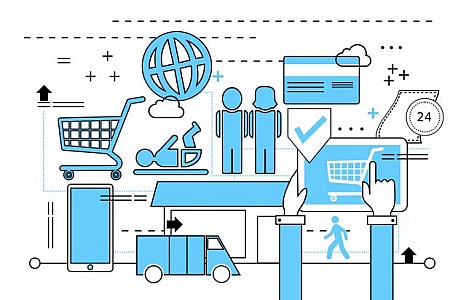In the intricate tapestry of office safety, the strategic use of cleaning supplies emerges as a linchpin, playing a pivotal role in upholding workplace hygiene and prioritizing the well-being of employees. This article navigates through the nuanced dimensions of incorporating cleaning supplies within office spaces, underscoring their professional significance in fostering a culture of safety, cleanliness, and optimal productivity.
The discerning application of cleaning supplies holds the key to mitigating potential workplace hazards, substantially contributing to the overall safety of employees. In the contemporary office milieu, where safety risks may not always be glaring, the strategic integration of cleaning supplies assumes heightened importance. Beyond their conventional association with cleanliness, these supplies embody a proactive commitment to ensuring workplace safety, underscoring the organization’s dedication to cultivating a culture where hygiene is paramount.
At the nucleus of office hygiene lies the meticulous selection and utilization of cleaning supplies tailored to address the unique challenges presented by the office environment. Disinfectants, sanitizers, and surface cleaners become indispensable tools in preventing the spread of germs, fostering a workspace that not only promotes the physical well-being of employees but also nurtures a sense of psychological safety.
Responding to evolving health considerations, the adoption of hand sanitizers and sanitizing wipes has gained prominence as an essential aspect of office safety. Ensuring accessible dispensers throughout the office fosters a culture of cleanliness, reinforcing the organization’s commitment to maintaining a safe and healthy workspace. Well-placed sanitation stations in communal areas contribute to a proactive approach in preventing the spread of infections.
Strategic placement of trash bins and recycling stations, equipped with appropriate liners, ensures the proper disposal of waste, minimizing the risk of contamination and contributing to an organized office space. Proper waste management not only enhances office safety but also aligns with sustainability goals, reflecting a holistic approach to creating a healthy and environmentally conscious workspace.
Floor cleaning supplies, including vacuum cleaners and mops, play a vital role in preventing slips, trips, and falls within the office environment. Regular cleaning of floors removes potential hazards such as spills or debris, enhancing the physical safety of employees and creating an aesthetically pleasing workspace. The professional appearance of a well-maintained office contributes to a positive work atmosphere and boosts employee morale.
The successful implementation of any cleaning supplies program hinges on proper execution and employee adherence. Employers play a pivotal role in fostering a culture where the use of cleaning supplies is not merely a requirement but a shared responsibility. Effective communication, regular training sessions, and visible support from leadership contribute to an environment where the importance of cleanliness is ingrained in the workplace culture.
Regular maintenance and replenishment of cleaning supplies ensure that employees have access to tools meeting necessary hygiene standards. This commitment to ongoing care reflects a proactive stance toward workplace safety and reinforces the organization’s dedication to providing a clean and secure working environment.
In conclusion, the integration of cleaning supplies into office safety initiatives represents a proactive and indispensable step toward cultivating a secure, hygienic, and thriving workspace. It necessitates a comprehensive and strategic approach that recognizes the unique challenges of the office environment. From disinfectants and sanitizers to trash bins, recycling stations, and floor cleaning supplies, each element contributes to a workplace culture that prioritizes cleanliness as an integral component of overall well-being. As organizations continue to evolve, investing in cleaning supplies not only emerges as a regulatory necessity but as a genuine commitment to creating environments that empower employees to thrive in a clean, safe, and confidently productive atmosphere.












